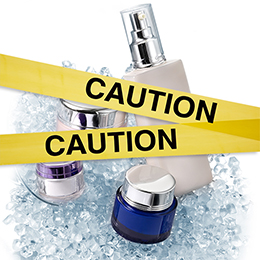Diversion is probably one of the most discussed topics in the professional skin care community with the majority of marketers facing this challenge. As the Internet has evolved as an important marketplace for everything beauty, a substantial number of professional skin care products—some of them counterfeit—are now sold through diverters on Amazon and eBay, undermining the intent of a company to sell authentic and high quality products through a reputable therapist, aesthetician, or physician.
Marketers have partnered with authorized websites, such as Lovely Skin and Dermstore, to sell their products. A new solution comes from the same online retailer that hosts diverters—Amazon. Its new Amazon Professional promises to shut down third-party retailers for those brands that sign on to their platform. However, this is not enough, and a new obstacle appears on the horizon from Walmart.com, another online retailer where many third-party resellers are relocating.
At the recent AAD conference we attended, marketers spoke about the merits of Amazon’s new professional platform, but realized it has limitations as well. Another diversion-curbing platform mentioned at the show were RegimenMD, which is slowly ramping up its physician base of subscribers. While platforms like this are in the nascent stages, marketers are experimenting and trying to figure out how their accounts will respond. Meanwhile, the problem is also an internal one, with marketers agreeing that they must do a better job of tracking sales to accounts who blatantly over-order.
According to our recent report Physician-dispensed Skin Care: U.S. Perception and Satisfaction Survey, doctors are most concerned with a brand’s ability to deliver the product quickly to them, the training and education that they can offer, and the business support they can lend to their partners. A small number of doctors we surveyed were even aware of RegimenMD, which resulted in some intriguing questions: Is diversion a physician-shared interest or is it the sole problem of the marketer? Do they acknowledge it? Do they divert themselves? What are some of the best practices used by leading brands to curb diversion?
Some marketers have taken a proactive approach to this matter. ZO Skin Health continues as the gold standard for its zero-tolerance policy for diverters. The company will close accounts that divert and is known for even taking legal actions against diverters. Other marketers are also expected to follow ZO Skin Health’s footsteps. Doctors are key diverters, but they are also key sellers of products in their office.
How do we develop ways to curtail them from over-ordering? Answers to these questions and many others we heard from marketers of professional skin care products will be addressed in our new Professional Skin Care: U.S. Anti-diversion Practices and Assessment, which is expected to be published later this year. Based on structured interviews with spa owners, physicians, and aestheticians, the study aims to guide marketers in the right direction to protect their brands against diversion. To learn more, please contact us.

